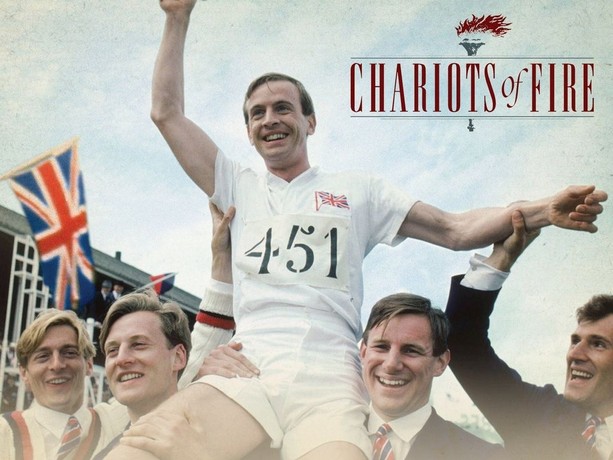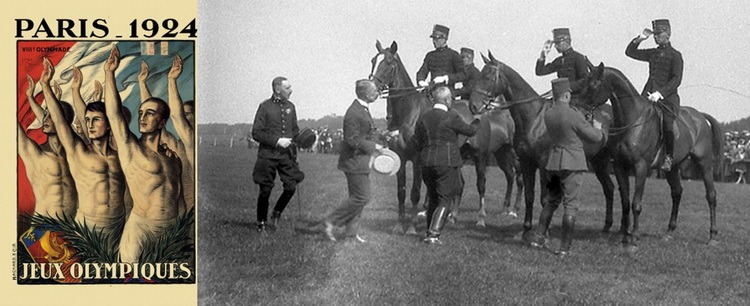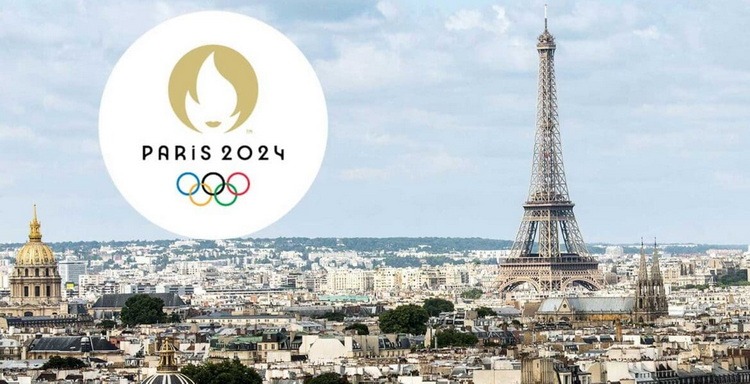The 2024 Paris Olympics is a long way from Chariots of Fire, the Best Picture of 1981, which depicted the Paris Games of 100 years ago.
That was an idealistic time, with participation limited to amateurs, when athletes sought glory for their country as much as for themselves. The final Games organized personally by Baron Pierre de Coubertin, the man who founded the modern Olympics, it was the second Olympics for Paris — which also hosted in 1900.
With World War I (incorrectly called the War to End All Wars) consigned to history, 1924 was a time of hope. The money and glitter associated with the commercialism of the Olympics in this era were yet to come.
Paris 1924 hosted 126 events involving 17 sports. Compare that with 329 medal events in 32 sports during Paris 2024. Only 3,089 athletes were in the 1924 Games; 10,500 was the number this time. There were about 625,000 spectators in 1924. This year, 15 million people fans were expected. Not counting the billions watching via TV, of course.
As romantic as the movie’s take on 1924 was, in the big picture for equestrian, these are far better times. Looking at black and white films of the show jumping in Paris 1924 is one long cringe, seeing the ungainly types of jumps and the way, for the most part, that the horses were ridden.
The 2024 Paris Games, which end Sunday, were fabulous in terms of horse sport and welfare. First of all, consider the stunning backdrop, the Château de Versailles. The beauty of that setting likely will never be duplicated at future Olympics. All the seats in the stadium were filled for each discipline, and more than 40,000 people turned out for cross-country. That’s great evidence for keeping horse sports in the Games.
Competitors and horses were safe, there were no bone-shattering falls. The jumps themselves were a treat, showcasing the highlights and culture of France, from Notre Dame to the Arc de Triomphe and haute couture. More important, we saw a renewed emphasis on horse welfare. Okay, the weather was a little warm, but that was handled with cooling stations, air-conditioned stables, wonderful footing and perfect conditions making for great performances.
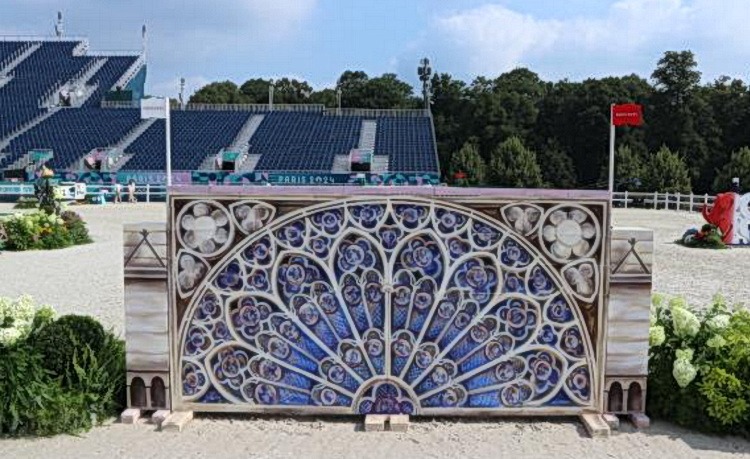
The wall replicated a stained glass window from Notre Dame cathedral.
And there were plenty of them. Britain and Germany dominated the medal standings with five each. The Brits took team gold in eventing and show jumping, the Germans in dressage, as usual, and that country enjoyed standout efforts in its sweep of individual gold medals: Michael Jung (Chipmunk) in eventing, Jessica von Bredow-Werndl (TSF Dalera BB) in dressage and Christian Kukuk (Checker 47) in show jumping.
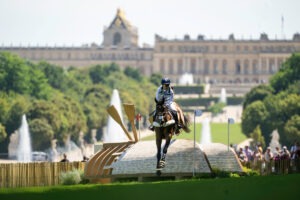
The chateau de Versailles made a striking backdrop for equestrian competitions, as seen here with Britain’s Laura Collett. (Photo Jon Stroud Media)
It was a difficult Olympics for the U.S., which didn’t come close to an eventing medal and was eliminated in dressage. The saving grace was a show jumping team silver, the third in a row for America at the Olympics.
Saying goodbye to the Olympics that have become a part of our lives over 17 exciting days is never easy.
I have recollections of many Olympic closing ceremonies, always a bittersweet farewell when the athletes marched before their fans one more time. Medal winners or not, they each had memories they would carry forever.
In Los Angeles, 40 years ago, I watched something new during the closing ceremonies. I still remember the lead paragraph of the story I wrote, “It was a great night for brotherhood and break dancing.”
Who had ever heard of break dancing?
Well, I thought, we’ll never see that again.
Wrong. Now breaking, as it’s called today, is one of the newer Olympic sports, geared to attract younger people who want to watch the Games on their phones.
Dressage at Devon even picked up the thread last year, having a couple of break dancers judge the new Dance-Off feature with riders in outlandish costumes doing fun freestyles.
At the Barcelona Games closing ceremonies in 1992, I decided to join the athletes (strictly forbidden) and simply waltzed from the press seating into the stadium. No one stopped me. Doing that today, with all the security in place, would mean arrest or worse.
But back them, it was a joyous time, far more relaxed, with Olympians from all the different sports mingling in a happy jumble. It felt great to be in the midst of it, though no one asked for my autograph, as they were doing with the basketball Dream Team.
The Paris Olympics, great as they were in many ways, disappointed me with an over-long opening ceremony on the Seine. The team members went by on the boats so quickly you didn’t really have a chance to look at them for as long as you would if they had marched into a stadium, which it is the way it was done at every other Olympics.
The athletes always should be the focal point, but they weren’t. The wacky, and to some, appalling aspects of the opener seemed off the mark about what the Olympics stand for — or are supposed to stand for, at any rate. And why showcase that song “Imagine” with the line, “Imagine there’s no country, it isn’t hard to do?”
Yes it is.
Representing your country is still what the Olympics are all about, along with the values of excellence, respect and friendship. Without national pride and the magnificent smorgasbord of nations in attendance, the Olympics would be just another sporting event.
So I’m skipping the closing ceremonies, which are being billed as “Dystopian,” and featuring Tom Cruise rapelling off the top of the stadium to come down and hand off the Olympic flag to Los Angeles, the 2028 host.
Enjoy, if that’s your thing. I’ll be watching Chariots of Fire.

